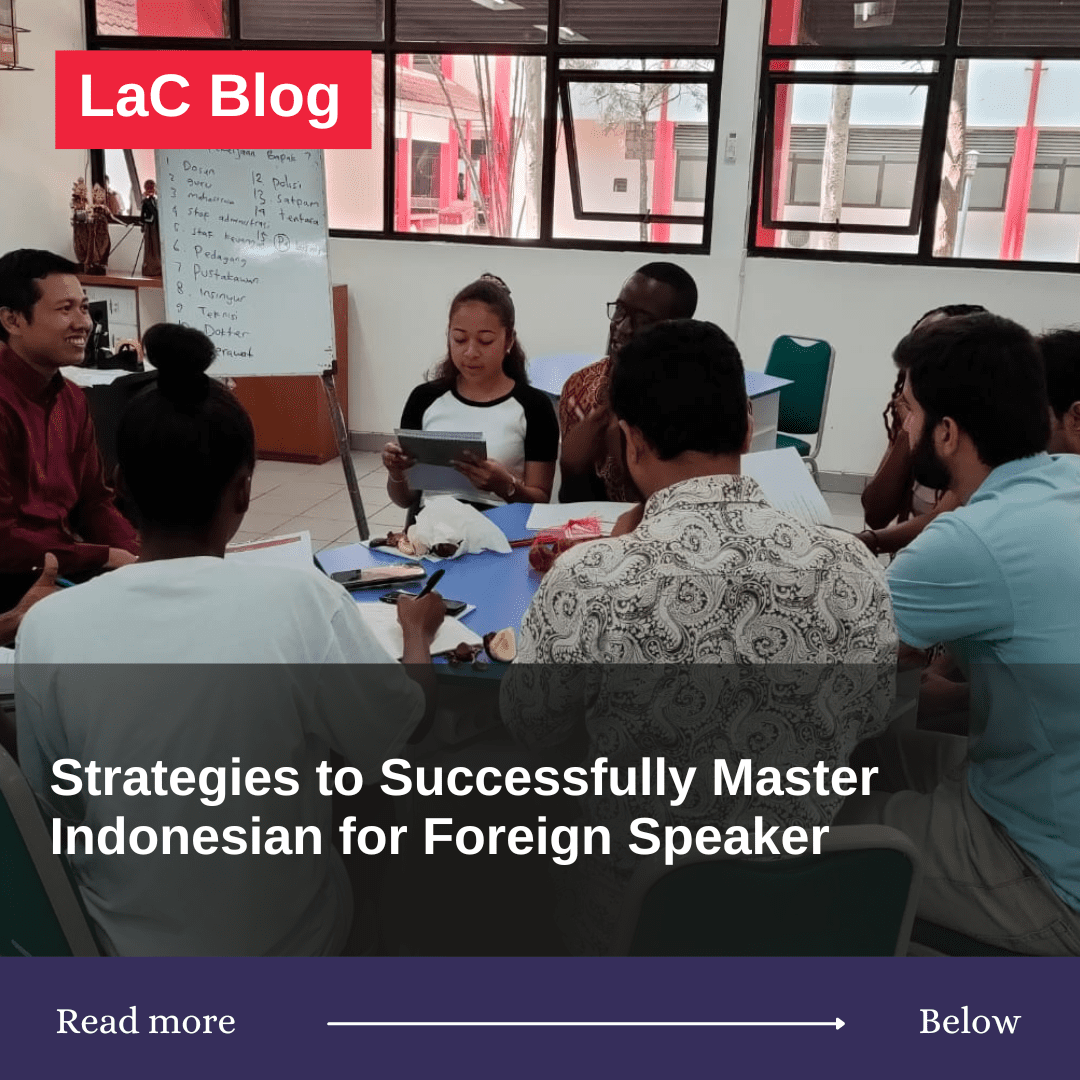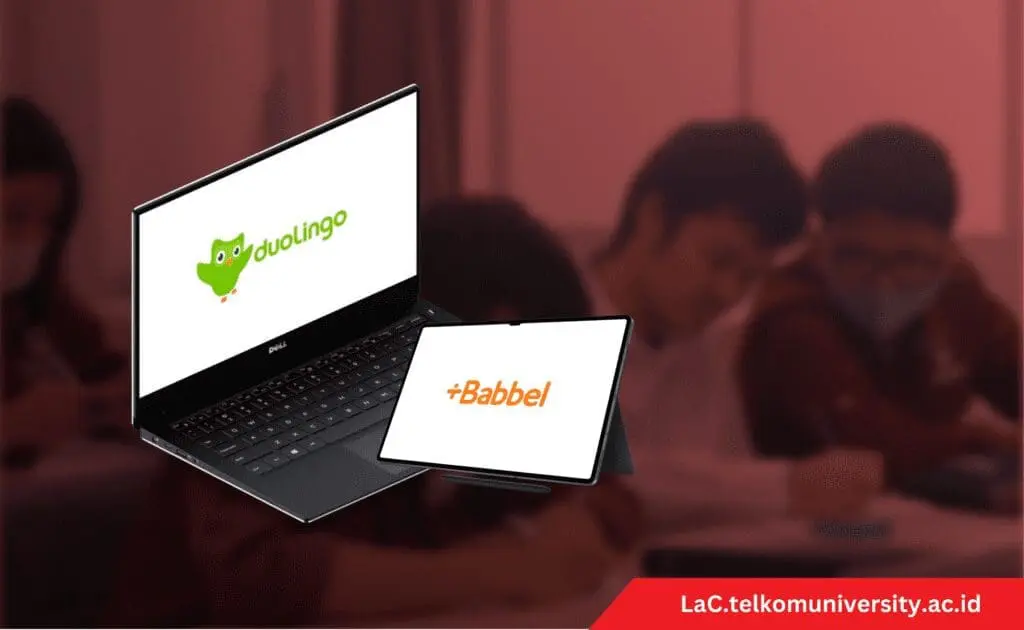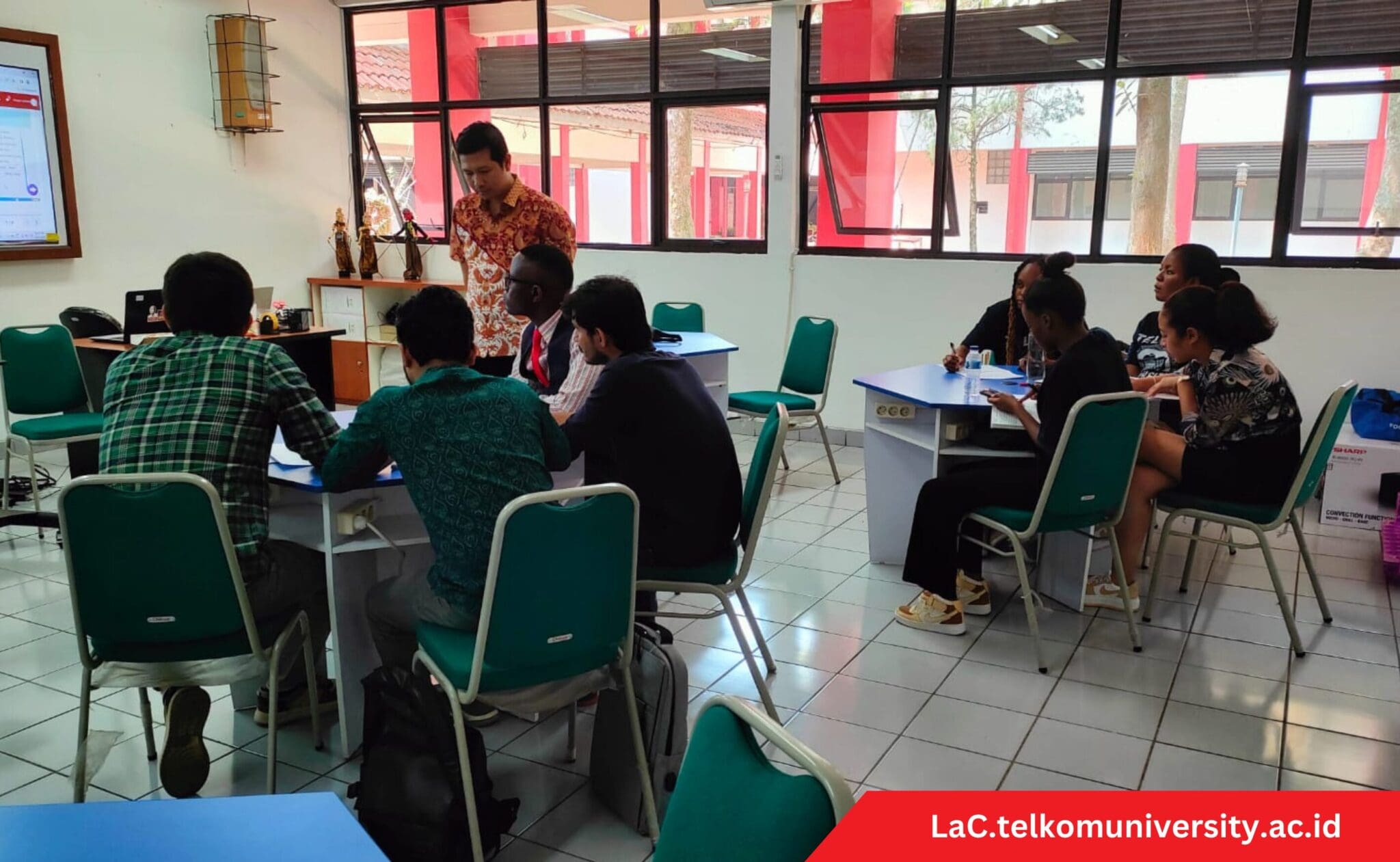
Strategies to Successfully Master Indonesian for Foreign Speaker
The Indonesian language, rich in cultural heritage and beauty, attracts many foreigners who want to explore and master it. As the official language of Indonesia, it serves not only as a daily communication tool for over 270 million people, but also a window to understanding the Indonesian’s diverse traditions, customs, and ways of life. Mastering Indonesian opens the door to deeper interaction with locals, appreciation of its rich and diverse culture, and enjoyment of its unique literature, music, and art. For many foreigners, learning Indonesian is the first step to feel more accepted and connected to their surrounding environment.

For international students who choose Indonesia as a study destination, or for expatriates working in various sectors, mastering Indonesian is no longer just an option, but a necessity. The ability to communicate in the local language can be very helpful in everyday life, whether it’s to interact with colleagues, to shop at traditional markets, or to simply understand daily conversations in the surrounding environment. In the professional world, proficiency in Indonesian provides competitive advantages, facilitates negotiations, and builds stronger networks with colleagues and business partners. Although Indonesian grammar is relatively simple, learning the language still requires dedication and effective learning strategies. In this article, we will discuss various successful strategies that can help foreign speakers master Indonesian more effectively and efficiently, making the learning process not only useful but also enjoyable.
Start with Basic Vocabulary
As with learning any new language, the first step is to master basic vocabulary. Focus on words commonly used in everyday life such as numbers, colors, pronouns, common verbs, and everyday objects. By mastering this basic vocabulary, you can begin to communicate in basic situations and understand simple conversations.
Some resources that can help you learn basic vocabulary include language learning applications such as Duolingo, Babbel, or using flashcards that can be downloaded for free.
Learn Grammar Correctly
Indonesian grammar is relatively simpler compared to some other languages such as French or German. There is no verb conjugation or change in noun form by gender or number. However, understanding the basic structure of sentences in Indonesian is very important. Start by learning the subject, predicate, object, and adverb in a sentence.
Examples of basic sentences:
– Saya makan nasi (I eat rice)
– Dia membaca buku (He/She reads a book)
– Mereka sedang belajar membaca (They are learning to read)
By understanding this pattern, you can start creating simple sentences and expand on them over time.
Active Speaking Practice
Practice is the key to success in language learning. Look for opportunities to talk to native Indonesian speakers. You can find language partner, join a language learning group, or even participate in an online language exchange program.
Actively speaking helps you apply learned vocabulary and grammar while improving your pronunciation. Don’t be afraid to make mistakes, as they are part of the learning process.
Utilize Media and Technology
Media such as movies, music, and news in Indonesian are very effective tools for learning. Watching Indonesian films with Indonesian or English subtitles can help you understand the context of words and phrases. Listening to Indonesian songs can also improve your listening skills and enrich your vocabulary.
Some Indonesian news sites such as Kompas, Detik, and Tempo also provide articles that you can read to improve your reading skills.
Get Involved in Local Culture
Language and culture are inseparable. To truly understand the Indonesian language, it is important to get involved in the local culture. Try attending cultural events, festivals, or even learning to cook Indonesian cuisine. This not only enriches your learning experience but also provides a better context for everyday language use.
Use Diverse Learning Methods
Everyone has a different learning style. Try different learning methods to find what works best for you. Some people may find it easier to learn through visuals, while others may prefer auditory or kinesthetic methods.
Here are some learning methods that you can try:
– Visuals: Using images, diagrams, and videos.
– Auditory: Listening to podcasts, recordings, or practicing with native speakers.
– Kinesthetic: Performing physical activities that involve the use of language, such as role-playing or language games.
Learning a language is a process that takes time and patience. Set a consistent and realistic study schedule. Try to practice every day, even if only for 10-15 minutes. Consistency in learning will help you see significant progress over time.
Use Online Apps and Resources

There are many online apps and resources specifically designed to help foreign speakers learn Indonesian. Some of them are:
– Duolingo: A popular language learning app with a gamification approach.
– Babbel: Paid app with comprehensive language courses.
– Memrise: An application that uses remote repetition techniques to help memorize vocabulary.
In addition, many blogs and YouTube channels also offer free Indonesian lessons.
Consistency and Patience
Join the Language Intensive Program
If you are serious about accelerating your Indonesian language skills, attending a language intensive program can be the right choice. Many universities and language institutions in Indonesia offer intensive Indonesian language programs for foreign speakers. These programs typically include lessons in grammar and vocabulary, as well as opportunities to interact with native speakers in person.
Don’t Forget to Rest and Relax
Learning a language can be a challenging process. It’s important to give yourself some time off. Don’t be too hard on yourself if you find it difficult. Enjoy the learning process and reward yourself for any progress made.
Indonesian Courses at Telkom University Language Center
Mastering Indonesian as a foreign speaker is a challenging but very rewarding journey. With the right strategies such as learning basic vocabulary, understanding grammar, speaking practice, and engaging in local culture, you can accelerate your learning process and gain proficiency in speaking Indonesian. It’s important to stay consistent, patient, and enjoy every step of the journey.
If you are looking for a structured and effective Indonesian learning program, Telkom University Language Center offers a variety of BIPA (Bahasa Indonesia for Foreign Speakers) programs that can be tailored to suit your needs. There is a Regular BIPA Program designed to help participants communicate in formal and informal situations, a Private BIPA Program for one-on-one learning with a more flexible schedule and personalized content, and a Cooperation BIPA Program for special needs of institutional cooperation.

Don’t miss the opportunity to learn Indonesian in-depth and practically with Telkom University Language Center. Sign up now and start your language journey with the right steps! Visit Telkom University Language Center for more information and registration. With passion and commitment, you will find that learning Indonesian is an experience that not only opens up new opportunities but also enriches your life as a whole. Enjoy learning and best of luck to you!
Penulis: Pusat Bahasa Tel-U | Editor: Auliya Rahman P | Foto: Pusat Bahasa Tel-U
Eksplorasi konten lain dari Telkom University Language Center
Berlangganan untuk dapatkan pos terbaru lewat email.